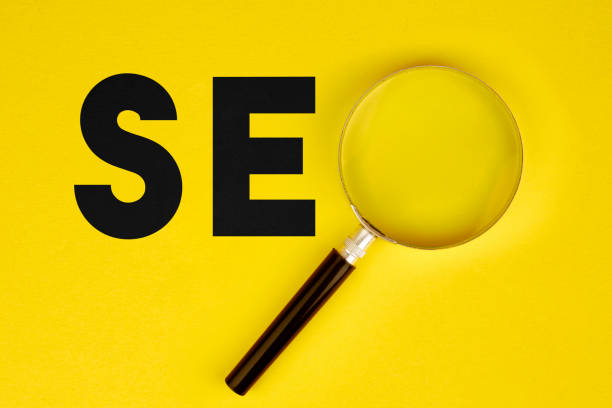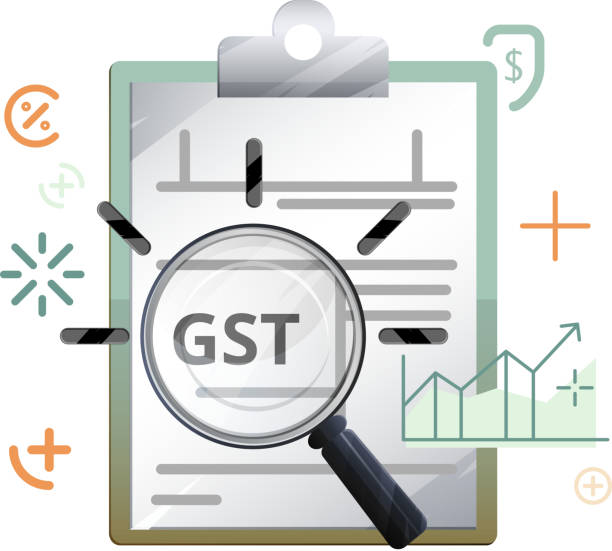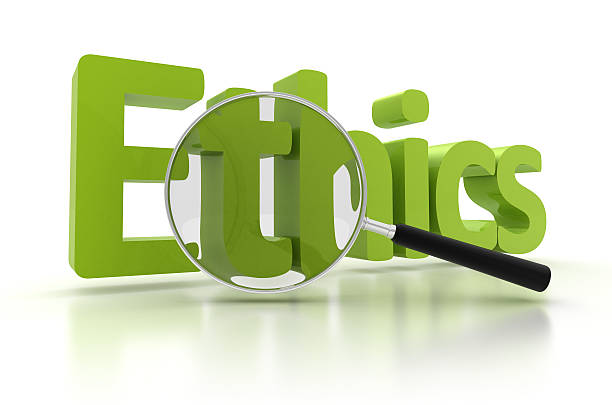Introduction to the World of SEO: Why is SEO Important?

In today’s highly competitive world, an online presence is vital for any business.
But simply having a website is not enough; you must ensure your target audience can find you.
This is where SEO, or Search Engine Optimization, plays a pivotal role.
SEO is a set of techniques and strategies that help your website achieve a higher ranking in the organic (non-paid) results of search engines like Google.
The main goal of SEO is to increase organic and quality traffic to your website.
The higher your ranking, the more visitors will see your website, increasing the likelihood of converting them into customers.
In this comprehensive explanatory guide, we will delve into various aspects of SEO to help you on your path to online success.
Understanding the fundamental principles of SEO is the first step for any business seeking visibility in the digital space.
Without #search_optimization, your business might get lost among competitors and miss countless opportunities.
Therefore, investing in the knowledge and proper implementation of #SEO_principles is of paramount importance.
Are you tired of your e-commerce site having visitors but no sales? Rasaweb solves your main problem with professional e-commerce website design!
✅ Significant sales increase with targeted design
✅ Flawless user experience for your customers
⚡ Get a free consultation!
The Foundation of SEO: Effective Keyword Research

The foundation of any successful SEO strategy is researching and identifying appropriate keywords.
Keywords are phrases that users enter into search engines to find the information, products, or services they need.
Choosing the right keywords helps you create content that precisely matches the needs and questions of your audience.
This educational section teaches you how to find high-volume and relevant keywords for your business.
Various tools such as Google Keyword Planner, Ahrefs, Semrush, and Moz Keyword Explorer can assist you in this process.
Paying attention to “User Intent” during keyword research is crucial.
Is the user looking for information (informational keywords), intending to buy (commercial keywords), or searching for a specific website (navigational keywords)? Understanding this distinction helps you produce more relevant and targeted content, increasing your chances of ranking in search results.
On-Page SEO: Internal Site Optimization

After selecting keywords, it’s time to optimize your website’s internal elements.
On-Page SEO includes all actions you can take directly on your website pages to improve their ranking in search engines.
These actions include optimizing title tags, meta descriptions, correct use of heading tags (H1, H2, H3…), appropriate keyword density (without overstuffing), image optimization (using proper Alt Text), and proper content structuring.
Content quality is also of high importance at this stage; your content must be comprehensive, valuable, unique, and user-friendly.
Internal links also play a crucial role in On-Page SEO, as they help search engines better understand your site’s structure and transfer page authority between one another.
This specialized section requires precision and attention to detail to ensure that each page is optimized for its target keywords.
| Element | Description | Importance for SEO |
|---|---|---|
| Title Tag | The first thing users see in search results. Must include the main keyword. |
Very High – Direct impact on Click-Through Rate (CTR) |
| Meta Description | A short summary of the page content in search results. | Medium – Indirect impact on ranking by increasing CTR |
| Headings (H1, H2, H3…) | Structuring content and improving readability. H1 should include the main keyword. |
High – Helps crawlers understand content structure |
| Quality Content | Comprehensive, accurate, unique, and user-friendly content. | Very High – The heart of SEO and organic traffic attraction |
| Images and Alt Tag | Using optimized images and Alt descriptions for images. | Medium – Improves accessibility and image SEO |
Technical SEO: Technical Optimization

Alongside content optimization, technical SEO ensures that search engines can easily crawl, index, and rank your website.
Site loading speed, mobile-friendliness, using an SSL certificate for security (HTTPS), proper URL structure, XML Sitemap, and Robots.txt file are among the key aspects of technical SEO.
A slow website or one inaccessible to search engine robots can never achieve a good ranking, even if it has excellent content.
Technical optimization provides a solid foundation for your overall SEO strategy.
Ignoring these aspects can severely harm your SEO performance.
Ensuring your website is technically sound signals to search engines that your website is trustworthy and of high quality.
Regular checking of PageSpeed Insights and Google Search Console is essential for identifying technical issues.
Are you tired of your e-commerce website not generating as much revenue as it could? Rasaweb, specializing in professional e-commerce website design, solves this problem permanently!
✅ Increased sales rate and revenue
✅ High loading speed and unparalleled user experience
⚡ Get a free consultation for e-commerce website design
Content is King in SEO: Content Marketing

Content is undoubtedly the heart of SEO.
Producing high-quality and valuable content not only helps you rank for your target keywords but also attracts and retains users.
This section discusses the importance of creating thought-provoking, entertaining, and useful content in various forms such as blog articles, videos, infographics, podcasts, and case studies.
Your content should answer users’ questions, solve their problems, and provide information not found anywhere else.
The E-A-T concept (Expertise, Authoritativeness, Trustworthiness), introduced by Google, emphasizes the importance of expertise, authority, and trust in content creation.
The more authoritative and trustworthy your content is, the higher your chances of ranking well.
A strong content strategy not only increases organic traffic but also strengthens your brand’s authority in your industry and establishes you as a reliable source.
Building Authority and Backlinks: Off-Page SEO

Off-Page SEO refers to actions performed outside your website to increase its credibility and authority.
The most important factor in Off-Page SEO is backlinks; these are links from other websites to your site.
Search engines view backlinks as a vote of confidence in your content.
The more reputable and relevant websites link to you, the higher your Domain Authority will be, and the greater your chance of ranking highly.
Link-building strategies include creating excellent content that naturally attracts links, guest blogging, digital public relations, and using news to gain attention and links.
Note that the quality of links is far more important than their quantity.
Spammy and low-quality backlinks can harm your SEO ranking.
Activity on social media and brand mentions online also indirectly influence off-page SEO.
Local SEO and Physical Businesses

For businesses with a local audience, Local SEO is of paramount importance.
Local SEO optimizes your online presence to attract customers from your specific geographical area.
The main element in Local SEO is the Google My Business (GMB) profile.
Accurately completing business information in GMB, including Name, Address, Phone Number (NAP), business hours, images, and services, is crucial.
Collecting and responding to customer reviews also plays a significant role in Local SEO, as it demonstrates trust and the quality of your services.
In addition to GMB, creating Local Citations in relevant online directories and optimizing website content with local keywords (e.g., “best restaurant in Tehran”) can also be helpful.
This comprehensive guide paves the way for local customers to reach you and can drive highly targeted traffic to your physical store or website.
| Element | Description | Impact on Local SEO |
|---|---|---|
| Google My Business (GMB) | Free business profile on Google for display in maps and local results. | Very High – Most important local ranking factor |
| Local Citations | Mentioning the business Name, Address, and Phone number (NAP) in directories and other websites. | High – Increases credibility and visibility |
| Reviews and Ratings | Customer feedback on GMB and other sites. | Very High – Impacts ranking and conversion rate |
| Local Keywords | Combining keywords with city name, region, or “near me”. | High – Attracts targeted local searches |
| Mobile Website Optimization | Ensuring site compatibility with mobile devices. | High – Many local searches are performed via mobile. |
Measuring SEO Success and Data Analysis

No SEO strategy is complete without continuous data measurement and analysis.
Tools like Google Analytics and Google Search Console provide valuable insights into your website’s performance in search results.
You should monitor Key Performance Indicators (KPIs) such as organic traffic, keyword rankings, Bounce Rate, time on site, most visited pages, and conversion rate.
Analyzing this data helps you identify the strengths and weaknesses of your SEO strategy and make data-driven decisions to improve performance.
This analytical section teaches you how to use these tools to gain a deeper understanding of user behavior and continuously improve SEO results.
Regular reporting and setting realistic goals are among the vital steps for long-term SEO success.
Did you know that 94% of a first impression of a company is related to its website design?
Rasaweb helps you create the best first impression by offering professional corporate website design services.
✅ Create a professional and trustworthy brand image for your brand
✅ Easier attraction of potential customers and improvement of online standing
⚡ Get a free consultation for corporate website design
Future Trends in SEO and Preparing for Changes

The world of SEO is constantly changing and evolving.
Search engine algorithms are continuously updated, and new trends emerge.
Understanding and preparing for these changes are essential to maintain and improve your rankings.
Some future-looking trends in SEO include the rise of voice search, optimization for image search, the role of artificial intelligence in content understanding and search, the increasing importance of user experience (UX) and Core Web Vitals, and a greater focus on Semantic SEO for better understanding user intent.
Also, the increasing use of videos and podcasts has made YouTube SEO and optimizing for them an important part.
Staying up-to-date with the latest news and changes in the SEO industry keeps you one step ahead of the competition.
SEO professionals must constantly be learning to adapt their strategies to changes.
Common Mistakes and Advanced Tips in SEO

On the path to search engine optimization, you may encounter common mistakes that can harm your SEO performance.
These mistakes include “keyword stuffing” (unnaturally filling content with keywords), duplicate content, spammy link building, ignoring site speed, and lack of mobile compatibility.
Avoiding these mistakes and adhering to ethical SEO principles (White Hat SEO) is crucial for sustainable success.
Furthermore, for better results, you can delve into more advanced techniques such as implementing Schema Markup for richer display in search results, optimizing for Featured Snippets, creating Pillar Content and Topic Clusters, and using SEO techniques for videos.
Finally, remember that SEO is a continuous process and requires patience and persistence.
By following these tips and consistently optimizing, your online business can achieve significant growth and solidify its position among competitors.
Frequently Asked Questions
| Question | Answer |
|---|---|
| What is SEO? | SEO, or Search Engine Optimization, is the process of increasing the quality and quantity of website traffic by improving the site’s ranking in natural (organic) search engine results like Google. |
| What are the main types of SEO? | SEO is divided into three main categories: On-Page SEO, Off-Page SEO, and Technical SEO. |
| What does On-Page SEO include? | On-Page SEO includes optimizing elements within the website, such as keywords, title tags, meta descriptions, content, URL structure, images, and internal links. |
| What is Off-Page SEO? | Off-Page SEO refers to activities outside the website that help improve its ranking, such as Backlink Building, social media marketing, and Brand Mentions. |
| What is Technical SEO? | Technical SEO deals with optimizing the technical aspects of a website to help search engines crawl and index it better. This includes site speed, mobile-friendliness, site structure, sitemaps, and the Robots.txt file. |
| What role do Keywords play in SEO? | Keywords are phrases that users enter into search engines. Proper and targeted use of relevant keywords in content and site elements helps search engines understand the topic of your page and display it for relevant searches. |
| What is a Backlink and why is it important? | A backlink, or inbound link, is a link from one website to another. Backlinks act as a “vote of confidence” from other sites for search engines and play an important role in the credibility and ranking improvement of a site, especially if they are from reputable sites. |
| What effect does quality content have on SEO? | High-quality, relevant, comprehensive, and unique content not only attracts and retains users but also shows search engines that your page is valuable. This helps improve ranking, reduce Bounce Rate, and increase user time on site. |
| Why is site loading speed important for SEO? | Site loading speed is an important ranking factor for Google. Faster sites provide a better user experience, have lower bounce rates, and are preferred by search engines. |
| Is SEO a one-time process? | No, SEO is a continuous and long-term process. Search engine algorithms are constantly changing, competition is increasing, and site content also needs updating. Therefore, SEO requires continuous monitoring, analysis, and optimization. |
And other services of Rasaweb Advertising Agency in the field of advertising:
Smart Direct Marketing: Designed for businesses seeking to analyze customer behavior through SEO-driven content strategy.
Smart Content Strategy: A combination of creativity and technology to increase website traffic through Google Ads management.
Smart Marketing Automation: A dedicated service for increasing website traffic growth based on Google Ads management.
Smart Custom Software: A professional solution for customer acquisition focusing on an SEO-driven content strategy.
Smart Direct Marketing: Transform user engagement with the help of an SEO-driven content strategy.
And over a hundred other services in the field of internet advertising, advertising consulting, and organizational solutions.
Internet Advertising | Advertising Strategy | Advertorial
Resources
Website SEO Training SEO From Zero to Hundred What is SEO? SEO Basics
? Ready to transform your business in the digital space? Rasaweb Afarin Digital Marketing Agency, by providing comprehensive services including modern UI website design and SEO optimization, is with you on the path to achieving online success.
📍 Tehran, Mirdamad Street, Next to Bank Markazi, Southern Kazeroon Alley, Ramin Alley, No. 6




